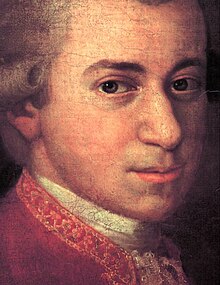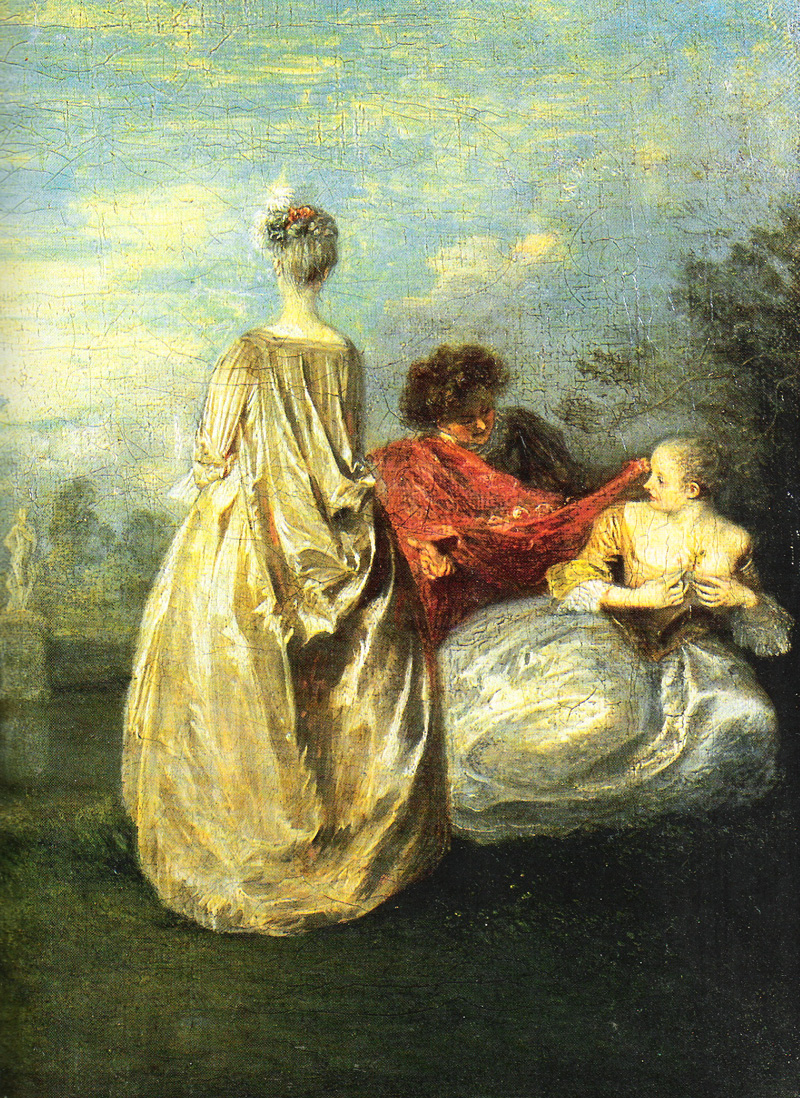Mozart - Così fan tutte
La Monnaie, Brussels, Sunday June 2 2013
Conductor: Ludovic Morlot. Production: Michael Haneke. Sets: Christoph Kanter. Costumes: Moidele Bickel. Lighting: Urs Schönebaum. Fiordiligi: Annett Fritsch. Dorabella: Paola Gardina. Guglielmo: Andreas Wolf. Ferrando: Juan Francisco Gatell. Despina: Kerstin Avemo. Don Alfonso: William Shimell. Orchestra and chorus of La Monnaie.
"Yes, [Mozart's characters] are overwhelmed as well as overwhelming and set challenges for one another. They go astray and end up not knowing which way to turn. They want to ‘save face’ and, to do so, lose track more and more of who they really are. It’s a lot to do with self-assertion and fear". (Michael Haneke on La Monnaie's website.)
I was at first concerned to read, in La Libre Belgique, that Michael Haneke had "chosen and imposed" the cast for this production of Così fan tutte. Stage directors do too much "imposing" of casts, forcing us to put up with voiceless wonders for the sake of looks and a little black dress. It turned out I needn't have worried: La Monnaie's season ended en beauté with one of the best Mozart productions I have ever witnessed; so good (such is opera) that any shortcomings in the singing were made irrelevant by the extraordinary quality of the whole undertaking.
The stage, in Haneke's conception, is largely empty, floored with grey marble flags continuing up a flight of wide, shallow steps, through giant sliding windows with gauze curtains, to the stoutly colonnaded portico outside. On the left is a mirrored pier that conceals (though not often) a well-stocked bar. When the bar door is open (i.e. most of the time: characters constantly reach for a drink at times of stress) bright, cold light streams across the flags. On the right is a period stone fireplace which, after nightfall, casts a golden glow that flares up when a log is added. The lighting, throughout, is impeccable. I’m not sure, for example, I’ve ever seen such beautifully natural twilight on stage before. At night, the servants (or catering staff) bring on a forest of silver and crystal candelabra, adding to the magic of the starry night sky. I half-expected fireworks.
To the left of the steps is a low, white bookcase filled with books, above which, on the wall is a Watteau (I guessed) cartoon. To the right, there’s boxily-cushioned, cream-coloured wall seating, with a matching pouf by the chimney. Through the vast panes, beyond the colonnaded terrace we see the head of a double flight of balustraded stone steps rising, we suppose, from a park and, beyond the cypress tops, the vast, pale-blue sky suggesting the sea is below.
This highly des. res. appears to be hosting a very smart party, with some, not all, of the guests in supremely elegant 18th century costumes (all costumes in this production, period or contemporary, are flawlessly chic) . Fiordiligi is in a nifty little geranium-red dress with a short, pleated skirt. Dorabella is in a black trouser suit. Both wear heels. The boys are in dark suits. But Don Alfonso is in period dove-grey and tiny Despina wears an all-white, vaguely Pierrot-ish outfit. This fancy dress element supports the disguises in the plot. The party, we sense, goes on in the park while the drama unfolds indoors.
Rarely is a production so understatedly intelligent and intriguing: these days, Regietheater tends to be more in-your-face about getting its Konzept across. Haneke transforms the work into an anxious, contemporary drama simply by changing the way the lines are delivered. (You could try it yourself: take a light-hearted line from the libretto, once the plot has got going - in act 2, say - and say it fretfully.) I disagree, however, with critics who have complained that he strips it of comedy: many laugh-lines still work.
In this production, Don Alfonso and Despina have a tense, love-hate relationship in which, while both are manipulators, Despina is the more dangerous of the two. It’s she who, at the denouement, has apparently pushed things too far. Having been suddenly and violently kissed on the mouth by Alfonso earlier, she gets suddenly and violently slapped for the outcome at the end - and returns the slap. The young lovers are involved in a rash and risky game. If ever they are dupe to what’s going on, by the end of act 1 the boys have already abandoned their disguises, yet they all carry on, fuelled perhaps by boredom and the vodka on constant supply at the chromium-plated bar. To underline the obvious artifice of the swap, Despina, as the doctor, is got up clownishly in a red nose (and "cures" the boys with an iPad): this is clearly a knowing experiment that will lead, at the end, to disillusion and desperate tears.
The cast, it turned out, was basically a classic La Monnaie team (I know they performed first in Madrid, but as the Real is now run by the old Brussels tandem...) of talented singers, not stars. Annett Fritsch and bright-voiced Juan Francisco Gatell were particularly striking. If there was vocally a weak link it was perhaps Kerstin Avemo, on whom Lulu may have taken her toll, but her recitatives, delivered slowly and somehow menacingly, were impressive and her acting was outstanding - like everyone else's: Haneke, of whose films I know nothing, is clearly a painstakingly meticulous director.
La Monnaie's orchestra wasn't at its best, with some surprisingly raggedy, ropey string playing. But as I said above, such is opera: it brings together so many elements that excellence in some departments may cancel out shortcomings in others. Overall this was a superlative end to the season, and if this production comes out on video it will, I imagine, be an instant modern classic.
Maestro Wenarto performs Cosi.
Conductor: Ludovic Morlot. Production: Michael Haneke. Sets: Christoph Kanter. Costumes: Moidele Bickel. Lighting: Urs Schönebaum. Fiordiligi: Annett Fritsch. Dorabella: Paola Gardina. Guglielmo: Andreas Wolf. Ferrando: Juan Francisco Gatell. Despina: Kerstin Avemo. Don Alfonso: William Shimell. Orchestra and chorus of La Monnaie.
"Yes, [Mozart's characters] are overwhelmed as well as overwhelming and set challenges for one another. They go astray and end up not knowing which way to turn. They want to ‘save face’ and, to do so, lose track more and more of who they really are. It’s a lot to do with self-assertion and fear". (Michael Haneke on La Monnaie's website.)
I was at first concerned to read, in La Libre Belgique, that Michael Haneke had "chosen and imposed" the cast for this production of Così fan tutte. Stage directors do too much "imposing" of casts, forcing us to put up with voiceless wonders for the sake of looks and a little black dress. It turned out I needn't have worried: La Monnaie's season ended en beauté with one of the best Mozart productions I have ever witnessed; so good (such is opera) that any shortcomings in the singing were made irrelevant by the extraordinary quality of the whole undertaking.
 |
| Mozart |
To the left of the steps is a low, white bookcase filled with books, above which, on the wall is a Watteau (I guessed) cartoon. To the right, there’s boxily-cushioned, cream-coloured wall seating, with a matching pouf by the chimney. Through the vast panes, beyond the colonnaded terrace we see the head of a double flight of balustraded stone steps rising, we suppose, from a park and, beyond the cypress tops, the vast, pale-blue sky suggesting the sea is below.
This highly des. res. appears to be hosting a very smart party, with some, not all, of the guests in supremely elegant 18th century costumes (all costumes in this production, period or contemporary, are flawlessly chic) . Fiordiligi is in a nifty little geranium-red dress with a short, pleated skirt. Dorabella is in a black trouser suit. Both wear heels. The boys are in dark suits. But Don Alfonso is in period dove-grey and tiny Despina wears an all-white, vaguely Pierrot-ish outfit. This fancy dress element supports the disguises in the plot. The party, we sense, goes on in the park while the drama unfolds indoors.
Rarely is a production so understatedly intelligent and intriguing: these days, Regietheater tends to be more in-your-face about getting its Konzept across. Haneke transforms the work into an anxious, contemporary drama simply by changing the way the lines are delivered. (You could try it yourself: take a light-hearted line from the libretto, once the plot has got going - in act 2, say - and say it fretfully.) I disagree, however, with critics who have complained that he strips it of comedy: many laugh-lines still work.
In this production, Don Alfonso and Despina have a tense, love-hate relationship in which, while both are manipulators, Despina is the more dangerous of the two. It’s she who, at the denouement, has apparently pushed things too far. Having been suddenly and violently kissed on the mouth by Alfonso earlier, she gets suddenly and violently slapped for the outcome at the end - and returns the slap. The young lovers are involved in a rash and risky game. If ever they are dupe to what’s going on, by the end of act 1 the boys have already abandoned their disguises, yet they all carry on, fuelled perhaps by boredom and the vodka on constant supply at the chromium-plated bar. To underline the obvious artifice of the swap, Despina, as the doctor, is got up clownishly in a red nose (and "cures" the boys with an iPad): this is clearly a knowing experiment that will lead, at the end, to disillusion and desperate tears.
The cast, it turned out, was basically a classic La Monnaie team (I know they performed first in Madrid, but as the Real is now run by the old Brussels tandem...) of talented singers, not stars. Annett Fritsch and bright-voiced Juan Francisco Gatell were particularly striking. If there was vocally a weak link it was perhaps Kerstin Avemo, on whom Lulu may have taken her toll, but her recitatives, delivered slowly and somehow menacingly, were impressive and her acting was outstanding - like everyone else's: Haneke, of whose films I know nothing, is clearly a painstakingly meticulous director.
La Monnaie's orchestra wasn't at its best, with some surprisingly raggedy, ropey string playing. But as I said above, such is opera: it brings together so many elements that excellence in some departments may cancel out shortcomings in others. Overall this was a superlative end to the season, and if this production comes out on video it will, I imagine, be an instant modern classic.
Maestro Wenarto performs Cosi.




An instant classic I would not say
ReplyDeleteDid you see the previous Cosi fan tutte production in Brussels? I quite like that. But the Haneke ending makes more sense.
www.ilgiardinodiarmidablog.wordpress.com
To be honest I don't remember. That's why I started a blog.
ReplyDelete